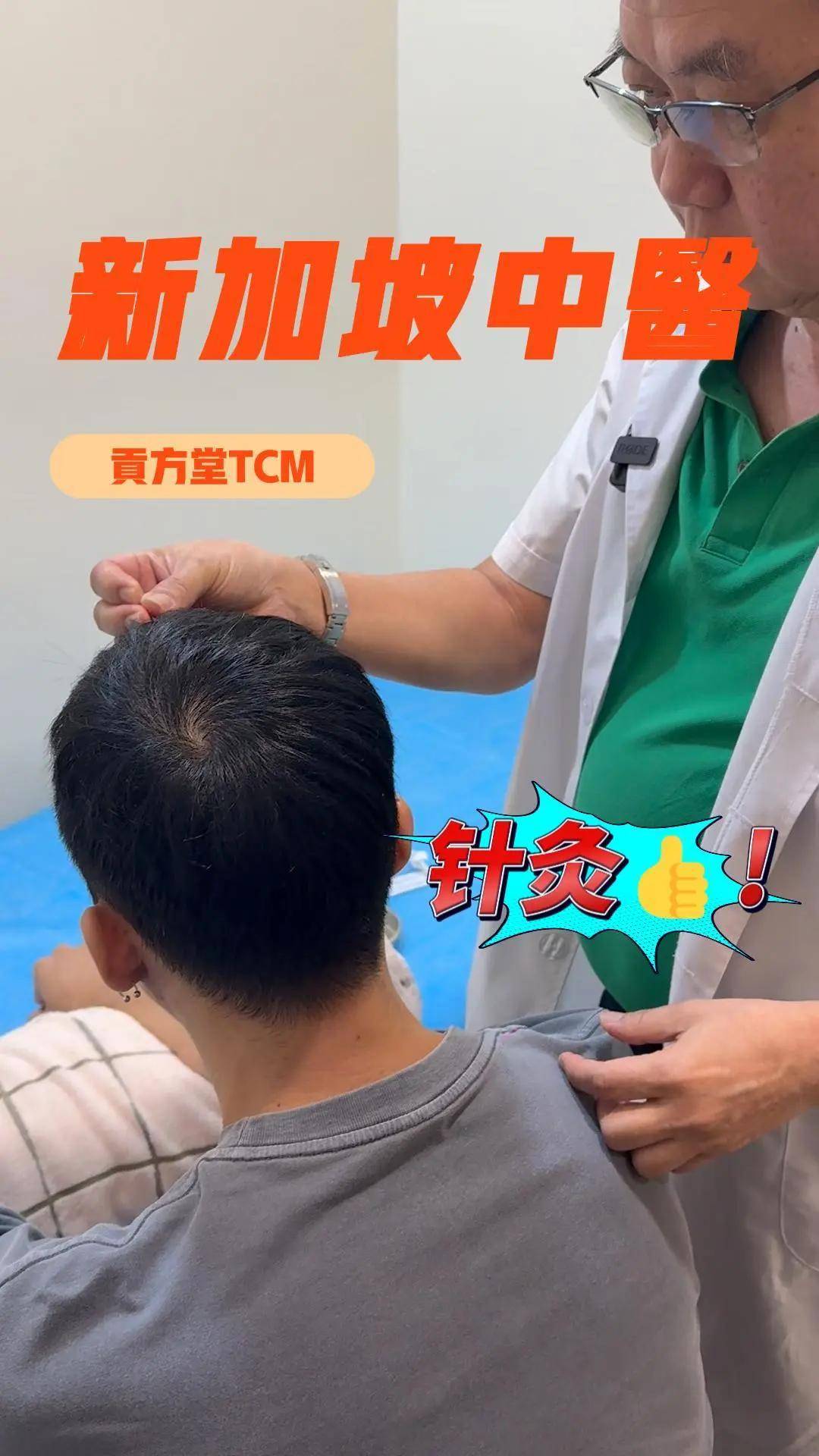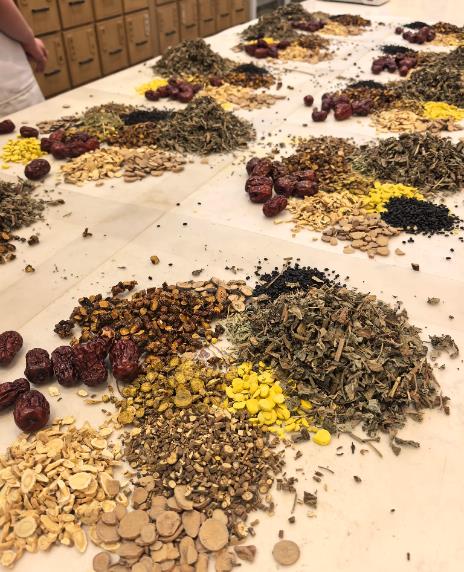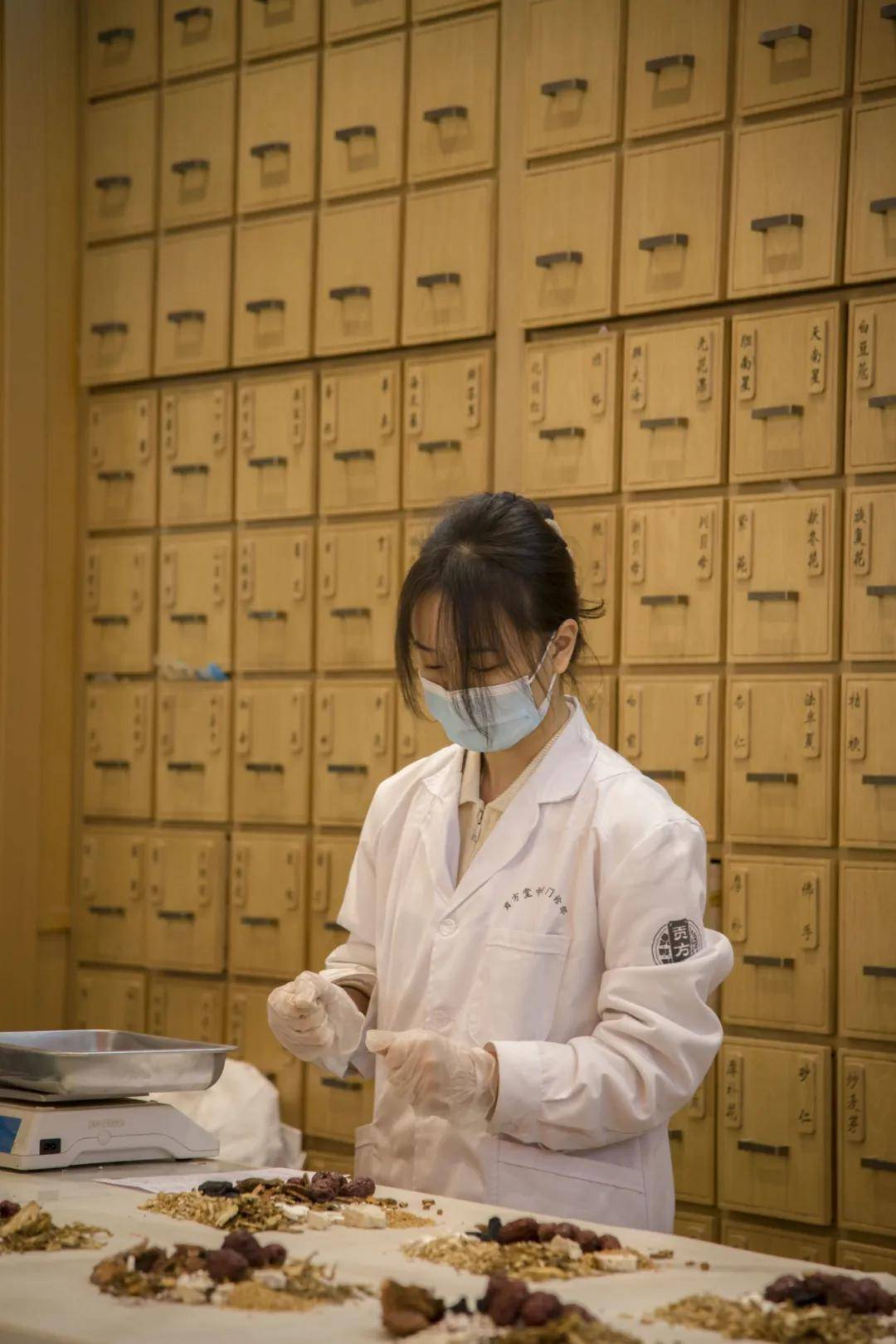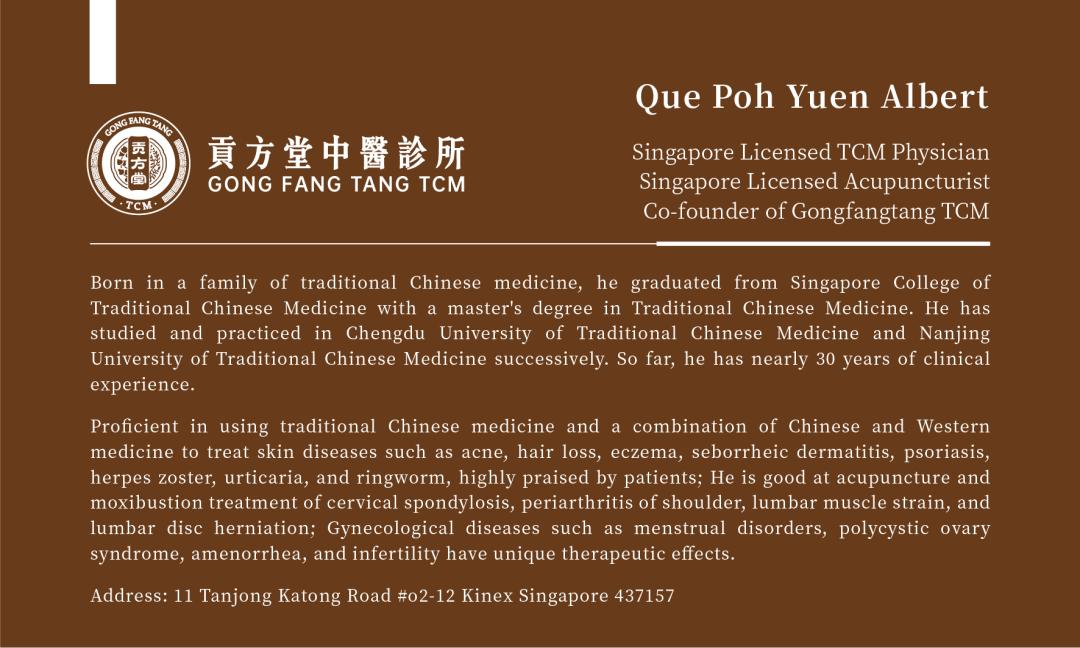Nowadays, hair loss has become a common concern for many people. Regardless of gender, it affects one’s image and appearance! When faced with thinning hair or a receding hairline, many can’t help but feel anxious.
Dr. Qiu Baorun, a TCM physician at Singapore’s Gongfangtang TCM, points out that hair loss is not merely an issue of hair follicles, but an external manifestation of internal imbalances in the body. Through pattern differentiation and personalized treatment, one can address the root cause and improve hair loss.

Root Cause of Hair Loss: Internal Imbalance is Key
Qi and Blood Deficiency: Long-term late nights and overexertion deplete qi and blood, leaving hair undernourished, leading to dryness and shedding.
Kidney Essence Deficiency: Congenital weakness or acquired depletion (e.g., chronic illness, excessive sexual activity) prevents kidney essence from nourishing the scalp, causing hair loss.
Damp-Heat Accumulation: Oily diets and weak spleen-stomach function lead to internal damp-heat, which steams the scalp and causes seborrheic hair loss.

Tailored Treatment Yields Results
For qi-blood deficiency, modified Bazhen Tang (Eight-Ingredient Decoction) with herbs like astragalus root, angelica, and cooked rehmannia is used to tonify qi and blood.
For kidney essence deficiency, Zuogui Wan (Left-Restoring Pill) combined with fleeceflower root, goji berries, and dodder seed replenishes kidney essence.
For damp-heat constitution, heat-clearing and damp-resolving herbs like coptis, poria, and alisma are used to improve scalp health.
Complementary External Therapies
Acupressure: Daily massage of Baihui (top of head), Xuehai (above the knee), and Zusanli (outer calf) points for 3–5 minutes each promotes blood circulation.
Herbal Hair Wash: Washing hair with a decoction of arborvitae leaves and ginger cools blood, dispels wind, and warms meridians to alleviate hair loss.
Lifestyle Adjustments
Follow dietary principles of "nourishing kidneys, enriching blood, strengthening the spleen, and resolving dampness". Consume foods like black beans, walnuts, Chinese yam, and red dates; avoid high-fat, high-sugar diets; reduce late nights. Gently comb the scalp with wooden combs to boost blood flow to hair follicles.

Case Study
Patient: Ms. Li, 36-year-old homemaker
Complaint: Receding hairline and oily scalp 6 months postpartum.
Diagnosis: Qi-blood deficiency with damp-heat.
Prescription: Modified Guipi Tang (Spleen-Restoring Decoction) taken orally, combined with plum-blossom needle therapy.
Result: After 3 months, dense vellus hair grew along the hairline, and hair volume recovered to 80% of pre-pregnancy levels.
Hair loss is not irreversible — start by adjusting your lifestyle! Dr. Qiu Baorun advises patience: improvement typically appears within 2–3 months. If hair loss is severe or accompanied by scalp redness, swelling, or patchy baldness, seek medical attention promptly to identify the cause.

TCM emphasizes personalized treatment. Herbal formulas and dosages must be tailored under professional guidance. NEVER self-medicate without consultation.